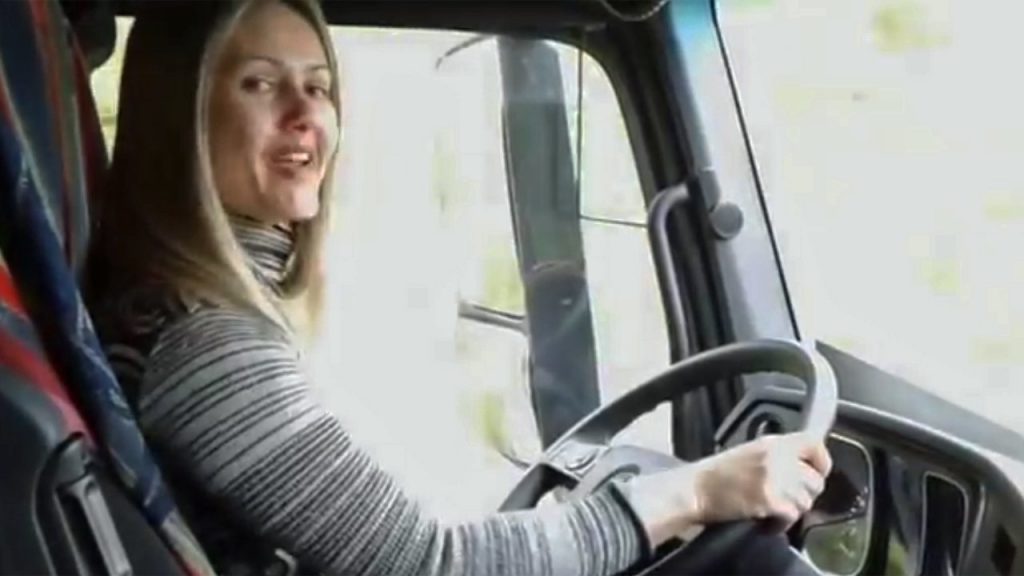By Richard Mann
RIO DE JANEIRO, BRAZIL – With an estimated deficit of 5,000 truckers, Portugal has increasingly resorted to foreign professionals, mainly Brazilians, to ensure its cargo transport system.
Industry data published by “Jornal de Notícias” shows that around 2,000 Brazilian truckers were hired in Portugal last year, in addition to another 1,000 from Venezuela. The difficulty in hiring these drivers is so great that companies are offering bonuses for recruitment abroad.

Patrícia Barreira, 43, who is used to crossing Europe carrying tons of cargo, says she “didn’t even know how to drive a car” when she was in Brazil. “I worked in stores, factories, and only later, I met Brazilians who were truck drivers here. They started telling my husband and me to try,” she says.
Patrícia emphasizes pay and safety as positive aspects, although the work routine is demanding. The interest of her fellow countrymen in the profession eventually turned Patrícia and her husband into Youtubers. The duo feeds a channel in which they report their daily life on the road, with videos exceeding 500,000 views.
The shortage of professional truck drivers in Portugal is due to a combination of factors, particularly wages. While the basic salary in the country is €630 (around US$700), the value more than doubles in other European countries, such as France and Germany.
Benefiting from mobility within Europe, many Portuguese choose to work in other countries. Besides, many drivers are aging and it’s difficult to attract young people to a career behind the wheel.
The legal minimum age of 21 is another troublesome factor for the sector, “an undesirable time gap between the end of compulsory schooling and potential admission to the profession,” says the National Association of Public Road Carriers of Goods, which brings together more than 200 companies in the sector.
Aside from speaking the same language, Brazilians enjoy a further advantage: a bilateral agreement enables them to convert their Brazilian driver’s license into a Portuguese driving license.

The privilege, however, is only valid for Brazilians who provide proof of legal residence in Portuguese territory. For cars and motorcycles, the exchange is simple. In the case of heavy-duty vehicles — categories C and D — an additional course is needed, as required throughout the European Union. The training varies from 30 to 140 hours, depending on the driver’s license type and time.
The requirements for operating in the European market — which complies with strict safety rules and regulations — thwart drivers who arrive in Portugal without the proper documentation.
This is the case of a 26-year-old young man from Goiás, who asked not to have his name disclosed. A truck driver in Brazil, he boarded for Portugal ten months ago with his wife and two-year-old son, prompted by success stories on social networks.
In truck driver groups on social networks, some Portuguese complain about the presence of foreigners. In their view, the new drivers downgrade the profession by accepting low wages.

